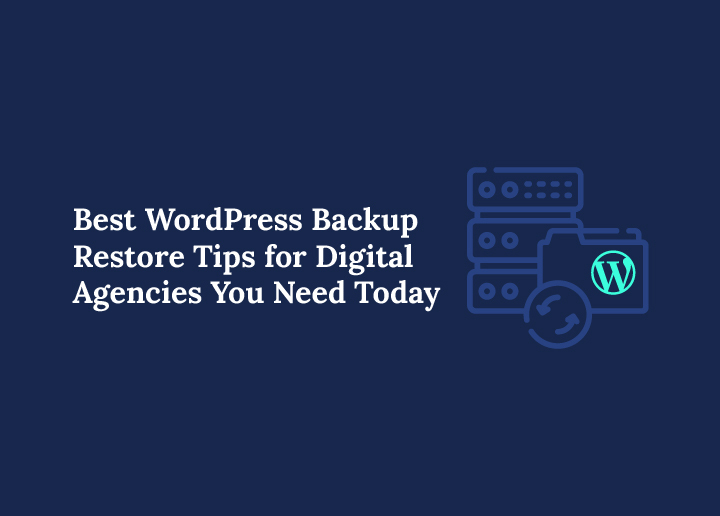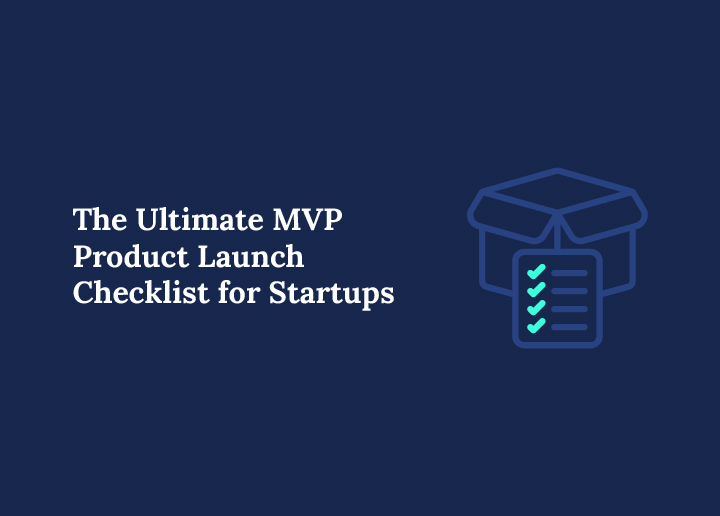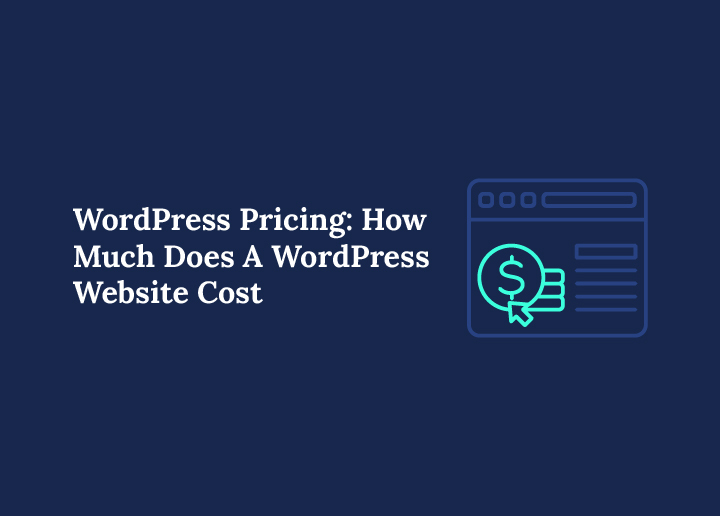For digital agencies, ensuring data security and maintaining client trust are paramount. Reliable WordPress backups play a crucial role in preventing data loss and enabling swift site recovery. This guide delves into the best WordPress backup restore tips tailored for digital agencies, empowering you to safeguard client data and minimize downtime effectively.
Implementing a robust backup strategy is essential for any agency aiming to uphold business continuity. By choosing reliable backup plugins with features like automated scheduling, off-site storage, and real-time backups, you can streamline your backup process and ensure seamless site restoration. These WordPress backup strategies protect your client’s websites and reinforce trust and reliability in your services.
Know the Importance of WordPress Backups

Digital agencies face numerous risks, from malware infections to human errors and hosting provider issues. These threats make regular WordPress backups an indispensable part of any agency’s strategy. Backups safeguard website data, reducing the risk of data loss and allowing for quick recovery during disruptions.
Client trust and business continuity are crucial for digital agencies. Without a recent backup, website downtime could result in lost revenue and damaged reputations. Regular backups minimize downtime and ensure quick site restoration, maintaining client satisfaction and confidence.
A reliable backup solution offers relief during stressful situations. With comprehensive WordPress backup strategies, you can operate confidently without the constant fear of data loss. This peace of mind is invaluable in an industry where data integrity is paramount.
Need Reliable Backup and Restore Solutions?
Ensure your digital agency’s WordPress site is always protected. With Seahawk’s comprehensive website care services, you can safeguard your data and quickly restore your site when needed.
Choosing the Right Backup Plugin for Your Agency

Choosing the appropriate backup plugin is vital for efficient WordPress backups. A reliable backup solution should offer comprehensive file and database coverage, quick restoration capabilities, support for incremental backups, and off-site storage options. The abundance of options can make finding the best WordPress backup plugin for your agency overwhelming.
BlogVault stands out with its real-time backups and staging environments, making it a robust choice for digital agencies.
Jetpack VaultPress Backup is a powerful option, providing real-time and daily backups, ideal for agencies managing multiple sites.
UpdraftPlus, with over 3 million active installs, is renowned for its user-friendly interface and extensive features, including incremental backups.
Installing a backup plugin from the WordPress repository is straightforward, ensuring easy user access. Consider the plugin’s compatibility with cloud storage services like Google Drive or Dropbox when making your choice.
BackWPup, for instance, offers complete database and file backups along with log reports, enhancing its reliability. Evaluating these features will help ensure you select the best WordPress backup plugin for your needs.
Implementing Automated Backup Solutions

Automated backup solutions are a game-changer for digital agencies, streamlining data protection and reducing the risk of data loss. Automated plugins like UpdraftPlus or Jetpack remove the hassle and potential errors of manual backups. These solutions ensure efficient data security by performing backups without constant manual intervention.
A recommended approach for automating WordPress backups is to use plugins that support scheduled backups. For instance, UpdraftPlus allows users to set up regular backup schedules, ensuring that recent backup versions are always available. A regular backup schedule is key to maintaining up-to-date backups and can be customized to your site’s activity level. Implementing effective WordPress backup strategies can further enhance your site’s security.
Plugins like BlogVault offer flexibility by allowing users to specify what to back up, including files, databases, and preferences. Jetpack VaultPress Backup enables automatic daily backups, ensuring your site is consistently protected without manual actions. These solutions not only minimize downtime but also provide peace of mind by ensuring regular and secure data backups.
Explore: Best Solutions to Backup Multiple WordPress Websites
Offsite Storage Strategies
Offsite storage space is crucial for a robust backup strategy. It protects your data from local server failures and other risks. The options ensure that your backups are secure and easily accessible when needed. This enhances the speed of recovery from data loss, enabling faster restoration processes.
Diverse offsite storage locations provide additional protection against data loss. Services like Google Drive, Dropbox, and Amazon S3 are reliable offsite storage locations for your backups. These services protect against local disasters and ensure your data is always accessible.
The 3-2-1 backup strategy, which includes one primary copy and two backups on different media with at least one stored offsite, is highly recommended. This strategy ensures that backups are recoverable even in the event of a regional disaster, providing peace of mind knowing your data is protected against various risks. Multiple backup storage locations enhance data security by protecting against loss in any single location.
Find: How to Avoid Your Site from Common WordPress Attacks
Best Practices for Manual Backups
Despite the convenience of automated backups, understanding manual backup processes is essential. To manually back up your WordPress site, you need to download your site’s files via FTP and export the database. This ensures that both WordPress files and the database are included, allowing for complete restoration.
A comprehensive backup should include WordPress core files, themes, plugins, and the media library. To preserve your site’s design and layout, back up themes from the /wp-content/themes/ directory. Since losing plugins can disrupt site operations, thorough backups of the entire WordPress site are crucial.
However, manual backups can be time-consuming and require a certain level of technical knowledge. Manual backups provide an extra layer of security and control over your data, despite the challenges. Adhering to established guidelines for WordPress backups ensures security and reliability.
Looking to Expand Your WordPress Capabilities?
Seahawk’s expert WordPress outsourcing services help your agency scale effortlessly. Access professional development, design, and maintenance services tailored to your clients’ needs.
Testing and Verifying Your Backups
Regular testing and verification of backups are crucial to ensure proper functioning in case of data loss. To verify functionality, backups should be tested frequently, ideally after every backup cycle. Routine audits of the backup process identify potential failures before they become critical issues.
A documented backup testing plan ensures consistent and effective recovery processes. Regularly practicing restore procedures in various scenarios guarantees effective site recovery when needed. Restoring backups in a staging environment confirms their reliability for future use.
Automated backup tests increase efficiency and ensure systematic validation without overburdening staff. Health checks on restored data helps detect subtle errors that may not be immediately apparent. Monitoring and alerting systems for backups maintain their health and reliability.
Read: How to Migrate from Drupal to WordPress: Complete Guide
Quick Restoration Techniques

Quick restoration capabilities minimize downtime and allow prompt recovery in emergencies. Before restoring, ensure the latest backup is available and verify its integrity to avoid compatibility issues. Many backup plugins offer one-click restore options, simplifying the process and aiding quick recovery.
For manual restoration, identify the backup file, upload necessary files, and manage the WordPress database with tools like phpMyAdmin. Regularly testing restoration procedures and maintaining detailed documentation ensures efficient recovery during emergencies.
User-friendly restore processes enable quick recovery without extensive technical knowledge.
Securing Backup Files
Securing backup files prevents unauthorized access and potential data breaches. Encrypt sensitive data during storage and transmission over networks. Strong encryption techniques and built-in backup plugin features can secure your backups.
Access controls on backup files and directories limit access to authorized personnel, minimizing data breach risks. A multi-layered security approach effectively protects backup data. Logs of administrative actions enhance accountability and traceability in backup management.
Regular audits identify potential vulnerabilities in the backup methodology before they become critical issues. Backup security measures should be regularly tested to confirm their effectiveness and identify vulnerabilities. Two-factor authentication adds extra protection for backup access.
Disaster Recovery Planning and Team Roles
A solid disaster recovery plan goes beyond creating WordPress backup files and restoring WordPress backups. It defines clear roles and responsibilities for your team when a site restoration is required. Having predetermined procedures and communication protocols streamlines the backup and restoration process in the event of a security breach or hosting provider failure.
Assign a recovery lead who monitors the backups page in your WordPress admin dashboard, an operations specialist to handle ftp client access and database backup imports, and a client liaison to keep stakeholders informed.
Implement service level agreements that specify restoration time objectives and recovery point objectives. Document each step in the process, from locating the complete backup in off‑site storage to uploading core WordPress files via the file manager or ftp client.
Include guidelines on verifying the SQL file integrity and testing the entire site on a staging server. This framework ensures fast, reliable full-site backups and restores under pressure while maintaining client trust.
Integrating Backup Processes into Your Workflow
A regular backup schedule keeps data current and secure. Automated backup solutions can run at intervals such as hourly, daily, weekly, or monthly. Tailor backup frequency to update frequency, with a higher frequency for active sites.
Integrating backup tasks into your website’s workflow enhances usability, ensures data security, and builds client trust. A well-integrated backup process ensures seamless operations, protecting your WordPress site without disrupting other tasks.
Hosting‑Level Snapshots and Server‑Side Backups
While plugin solutions excel at automating backups, hosting‑level snapshots capture the whole server environment, including wp-config.php settings, the wp-content folder, and web server configurations.
Managed hosts like DreamHost, Kinsta, and WP Engine offer one‑click snapshots that create a complete WordPress backup of the entire site, from core WordPress files to media uploads and plugin files. These snapshots reduce reliance on manual backups and local computer exports of the MySQL database.
Server‑side backups run independently of WordPress plugins, preserving your site database, uploads folder, and configuration files in a single image. When a restore is necessary, you can roll back the WordPress root directory and your hosting account configuration in one step.
This method offers faster recovery than importing SQL files manually and minimizes the risk of missing file permissions or wp-config errors during restoration.
Leveraging Incremental and Differential Backups
Incremental backups reduce data storage needs by saving only recent changes instead of full site copies. This process is quicker and maintains smaller backup file sizes compared to differential backups. Combining full backups with frequent incremental backups can be more cost-effective than relying solely on differential backups.
Differential backups offer faster restoration, needing only the last full backup and the latest differential backup to restore data. This method reduces the number of backups to manage while providing multiple restore points. However, differential backups can grow larger over time, especially with extended intervals between full backups.
Choosing between incremental and differential backups depends on data change frequency and restoration speed requirements. Evaluating these factors helps determine the best approach for your agency’s needs.
Find: Best WordPress Security Service Providers ( Plugins)
Compliance, Data Retention, and Industry Regulations
Digital agencies serving clients in regulated sectors must align their backup and restoration processes with legal requirements such as GDPR, HIPAA, or PCI‑DSS. They must define retention policies that specify how long backups are stored and whether partial or complete backups reside on encrypted off‑site servers. They must also use strong encryption for database backup files at rest and in transit and maintain audit logs that track when backups are created, modified, or deleted.
Ensure that your backup solution can export the site database and media files in compliance with data privacy laws. Store backups in approved regions and restrict access through role‑based controls in your WordPress admin dashboard or hosting server.
Implement a legal hold process for critical SQL files when litigation or compliance investigations arise. Regular audits of backup and retention policies will confirm adherence to industry regulations and protect sensitive client data.
Read More: How to Make a HIPAA Compliant Website with WordPress
Performance and Cost Optimization Strategies
Backing up every file and database state can strain storage and impact site performance. Balancing full site backups with more frequent incremental backups that capture only changed files and database records to optimize resource usage.
Combine a weekly complete backup with daily incremental snapshots of your database backup and uploads folder. This hybrid approach reduces storage costs while maintaining granular restore points.
Leverage compression and deduplication features offered by premium plugins or hosting snapshots to shrink WordPress backup files and limit data transfer during automatic backups. Monitor storage tiers on your hosting provider and archive older backups to cost‑effective cold storage solutions.
Analyze the size of your plugin files, media uploads, and SQL files to adjust your backup frequency and retention rules. By fine‑tuning this strategy, you achieve solid backups that do not overburden your web server or inflate your hosting bill.
Final Verdict: Comprehensive Backup Restore Backups
Implementing a comprehensive WordPress backup strategy is crucial for digital agencies. From understanding the importance of backups to choosing the right plugins, automating solutions, and securing backup files, each step plays a vital role in protecting your clients’ data. Regular testing and quick restoration techniques ensure that your backups are always reliable and ready for emergencies.
By integrating backup processes into your workflow and leveraging incremental and differential backups, you can maintain data integrity and minimize downtime. A robust backup strategy not only safeguards your digital assets but also builds trust with your clients, ensuring business continuity and peace of mind.
Frequently Asked Questions about WordPress Backup Restore Tips
Why are WordPress backups important for digital agencies?
WordPress backups are essential for digital agencies to safeguard against data loss and ensure smooth recovery from potential disasters. By prioritizing backups, you maintain client trust and continuity in your services!
What features should I look for in a backup plugin?
Look for a backup plugin that offers comprehensive file and database coverage, quick restoration options, incremental backups, and off-site storage. Popular choices like Jetpack, VaultPress Backup, BlogVault, and UpdraftPlus are great options to ensure your data’s safety!
How often should I schedule automated backups?
You should schedule automated backups based on your site’s activity level, hourly or daily for highly active sites, and weekly or monthly for less active ones. Consistent backups will give you peace of mind and protect your valuable data!
How can I secure my backup files?
To secure your backup files, encrypt sensitive data, use strong passwords, and set up access controls. Implementing regular audits and two-factor authentication will further boost your security measures!
What are the differences between incremental and differential backups?
Incremental backups are efficient, saving only the latest changes, which minimizes storage and time. In contrast, differential backups capture all changes since the last full backup, offering quicker restoration but with larger storage requirements over time. Choose incremental for efficiency, or differential for faster recovery!



